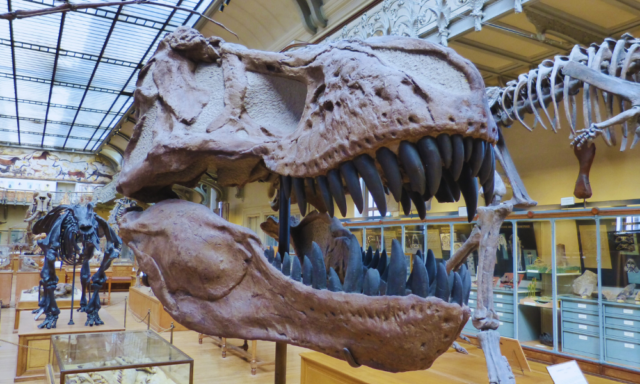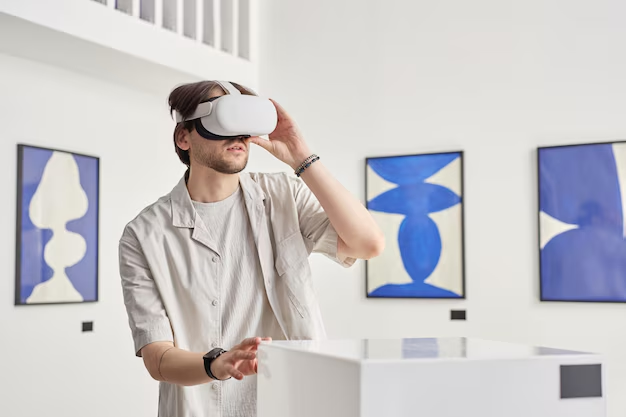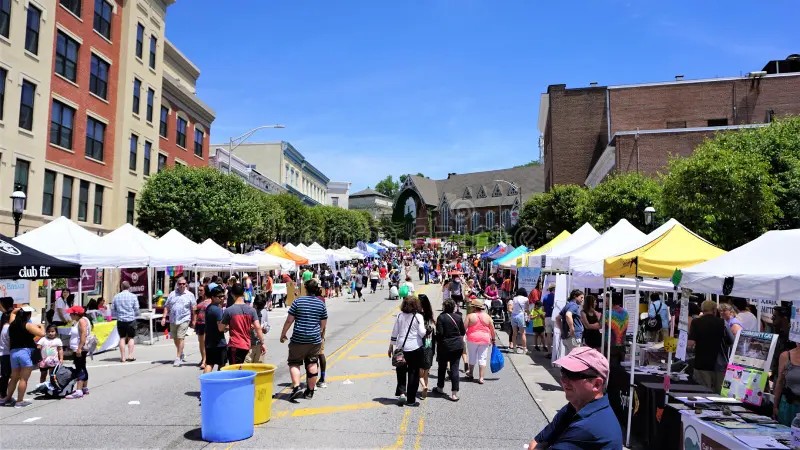
The Digital Renaissance: How Technology is Reshaping Cultural Events
For centuries, cultural events have been the lifeblood of human connection. From ancient Olympic games and medieval festivals to modern concerts and art exhibitions, these gatherings have served as cornerstones of community, identity, and shared experience. They are where we celebrate, learn, mourn, and forge the bonds that define us. However, the very fabric of what constitutes a “cultural event” is undergoing a profound transformation, driven by technological advancements that are dismantling geographical barriers, democratizing access, and redefining the nature of participation itself. We are moving beyond the era of passive spectatorship into a new age of active, real-time, and co-created cultural ecosystems. This digital renaissance is not merely about putting old formats online; it’s about building entirely new frameworks for how we interact with art, entertainment, education, and each other, impacting everything from our personal Health & Wellness to our global sense of Community Living.

The Evolving Definition of a Cultural Event
The traditional image of a cultural event is one of physical presence—a crowded stadium, a quiet museum hall, a bustling street fair. While these experiences remain invaluable, their limitations in terms of accessibility, cost, and scale are undeniable. The digital revolution has shattered these constraints, giving rise to a new spectrum of hybrid and virtual experiences that are fundamentally altering the landscape.
Beyond the Venue: The Rise of Hybrid and Virtual Experiences
The most significant shift is the decoupling of the event from a single physical location. Technologies like high-definition live streaming, virtual reality (VR), and augmented reality (AR) are no longer niche novelties but core components of the modern event toolkit. A music festival can simultaneously host attendees on a grassy field and a million more in a virtual metaverse. An art gallery can unveil a new exhibition to patrons in its halls while offering an immersive VR tour to a global audience. This hybrid model offers the best of both worlds: the energy of a live crowd and the limitless reach of the digital realm. This convergence is a constant feature in Entertainment News, as artists and promoters innovate to capture wider audiences. The result is a more inclusive and accessible cultural sphere where participation is not dictated by one’s zip code or ability to travel.
The Spectrum of Modern Cultural Gatherings
This technological flexibility has led to an explosion in the diversity of cultural events. The definition has expanded to include a vast array of gatherings that cater to nearly every imaginable interest, fostering niche communities on a global scale. Consider the breadth of what now qualifies as a major cultural event:

- Wellness and Lifestyle Summits: Global audiences can now participate in multi-day virtual festivals focused on Mental Health, featuring live Meditation sessions, interactive Mindfulness workshops, and the latest Yoga News from leading instructors. These events provide actionable Fitness Tips and cutting-edge Nutrition News, promoting a sense of Holistic Health.
- Creative and Hobbyist Conventions: Instead of traveling to a convention center, enthusiasts can join live, interactive workshops from their living rooms. This includes everything from DIY Projects for Home Improvement, masterclasses on Interior Design and Home Decor, and virtual book clubs that host author Q&As based on recent Book Reviews.
- Community and Social Impact Causes: Digital platforms have become powerful tools for mobilization and education. Events focused on Sustainable Living can bring together experts on Eco-Friendly Living and Zero Waste lifestyles. Similarly, digital meetups for Urban Gardening enthusiasts, forums on ethical Pet Care, and conferences on Social Impact connect like-minded individuals to share knowledge and drive change.
The Technology Driving Real-Time, Interactive Culture
The engine powering this cultural evolution is a suite of technologies designed for speed, scale, and interaction. The architectural shift from centralized, top-down platforms to decentralized, community-driven networks is perhaps the most critical development, promising a more equitable and transparent future for creators and participants alike.
From Centralized Platforms to Decentralized Networks
In the traditional model, a single entity—a promoter, a corporation, a platform—controls every aspect of an event. They manage ticketing, curate content, own user data, and dictate revenue splits. While efficient, this model can lack transparency and concentrate power in the hands of a few. The emerging paradigm, inspired by blockchain and decentralized principles, flips this model on its head. It enables community-owned platforms where rules are transparent, governance is shared, and value flows more directly from participants to creators. This can have profound implications for the creator economy, impacting Personal Finance for artists and organizers. For attendees, it fosters a greater sense of trust and ownership in the communities they are a part of. The latest Investment News in the tech sector often highlights platforms pioneering these new, more equitable models.
Instant Gratification: The Power of Real-Time Interaction
The defining characteristic of modern digital events is real-time interactivity. The lag between action and reaction is shrinking to zero, creating a dynamic feedback loop between the presenter and the audience. This is made possible by low-latency streaming, which eliminates frustrating delays, and a host of interactive tools: live polls, real-time Q&A sessions, collaborative digital whiteboards, and gamified reward systems. Imagine a live Food & Cooking class where a chef can instantly see photos of participants’ progress and offer personalized advice on their Healthy Recipes. Or consider a live debate on a current event where the audience isn’t just watching but actively trading on predicted outcomes, turning passive viewing into an engaging, high-stakes experience.
Scalability and Accessibility for a Global Audience
Technology removes the physical constraints of a venue, allowing events to scale almost infinitely. A local poet who once read to a crowd of 30 in a coffee shop can now perform for an audience of 30,000 across the globe. This unprecedented scalability democratizes fame and influence, creating new avenues for cultural exchange. It also has a significant impact on related industries. The latest Travel News may soon be less about physical tourism and more about virtual “event tourism,” where people can experience the cultural highlights of a city without the carbon footprint. This aligns with a growing desire for Green Living, offering an eco-friendly alternative to traditional event attendance.
Navigating the Social and Personal Impact of Digital Culture
While the benefits of this digital shift are immense, it also introduces new challenges to our social fabric and personal well-being. Navigating this new landscape requires a conscious and mindful approach to ensure that technology serves our human need for connection rather than undermining it.
Mental Health and Digital Fatigue
The “always-on” nature of digital events can lead to significant screen fatigue and a pervasive sense of FOMO (fear of missing out). The pressure to be constantly connected can disrupt Work-Life Balance and contribute to anxiety. Effective Stress Management becomes crucial. It is essential to integrate practices like Minimalism into our digital lives, consciously choosing which events to attend rather than trying to be everywhere at once. Improving Sleep Health by setting clear boundaries for evening screen time is another vital practice. The goal is to use these platforms for enrichment, not as another source of digital noise.
Building Authentic Communities in a Digital World
A common critique of online interaction is its perceived lack of authenticity. However, when designed with intention, digital events can foster deep and meaningful Relationships. Niche communities built around shared hobbies or values can provide a powerful antidote to loneliness, especially for those in remote areas or with limited mobility. For instance, a support group for parents navigating the challenges of Family Life can offer invaluable connection. Likewise, teams engaged in Remote Work can use structured virtual social events to build the camaraderie that is often missing outside of a physical office.
The Democratization of Culture and Social Impact
Perhaps the most profound societal impact is the democratization of cultural production. The barriers to entry for creating and hosting an event have been dramatically lowered. Anyone with a passion and an internet connection can share their knowledge, art, or perspective with the world. This has given a global platform to underrepresented voices and has led to a richer, more diverse cultural tapestry. Events focused on Social Impact can now be organized with minimal resources, promoting Volunteering opportunities and raising awareness for critical causes. It also creates new platforms for important discussions, such as those around Aging Well and creating inclusive digital spaces for Senior Living communities.
Best Practices for Participants and Organizers
To thrive in this dynamic new event landscape, both attendees and creators need to adopt new strategies. It’s about being intentional with our time, resources, and goals to make the most of the incredible opportunities available.
For Attendees: Maximizing Your Experience
- Financial and Time Management: Approach your digital event calendar with a plan. Use Budget Tips to manage subscriptions and ticket purchases. Employ Productivity Tips like scheduling events in your calendar with reminders to maintain a healthy Work-Life Balance.
- Optimize Your Environment: Create a space that is conducive to engagement. This can be a small Home Improvement project, like setting up a comfortable chair and good lighting. Use Technology for Home, such as quality headphones, to minimize distractions. Simple Organization Tips and Decluttering your space beforehand can significantly improve focus.
- Engage for Personal Growth: View events as opportunities for Self-Improvement. Actively participate in chats, ask questions in Q&A sessions, and connect with other attendees. Many events offer valuable Career Advice and networking opportunities.
For Organizers: Creating Engaging and Successful Events
- Prioritize Interaction: Choose technology platforms that are built for real-time engagement, not just one-way broadcasting. The goal is to create a community, not just an audience.
- Focus on Niche and Value: The most successful events provide unique value to a specific community. A workshop on Plant Care for apartment dwellers or a seminar on Sustainable Fashion can attract a more dedicated audience than a broad, generic event.
- Build a Safe and Inclusive Space: Establish clear community guidelines and have moderation tools in place. Ensure your event is accessible to people with disabilities. A secure environment, potentially enhanced by good Home Security practices for your own broadcast setup, builds trust.
Conclusion
The world of cultural events is in the midst of a seismic shift. We are moving from a model defined by physical proximity and centralized control to a future characterized by digital accessibility, real-time interaction, and decentralized, community-driven ecosystems. This transformation is unlocking unprecedented opportunities for connection, learning, and shared experience on a global scale. While we must remain mindful of the challenges, such as digital fatigue and the need for authentic connection, the trajectory is clear. The future of culture is not just about attending events; it’s about participating in them, shaping them, and co-creating them in a vibrant, ever-evolving digital landscape where every voice has the potential to be heard.
You may also like
Archives
- February 2026
- January 2026
- December 2025
- November 2025
- October 2025
- September 2025
- August 2025
- January 2024
- October 2023
- September 2023
- August 2023
- July 2023
- June 2023
- May 2023
- April 2023
- March 2023
- February 2023
- January 2023
- December 2022
- November 2022
- October 2022
- September 2022
- August 2022
- June 2022
- May 2022
- April 2022
- March 2022
- January 2022
- December 2021
- November 2021
- October 2021
- August 2021
- November 2020
- July 2020
- May 2020
- April 2020
- March 2020
- August 2018
- July 2018
- June 2018
- April 2018
- March 2018
Categories
- Aftercare Procedures
- Age Groups
- AI/ML
- Alternative Medicine
- Ambient Computing
- Animal Health
- Animal Husbandry
- Animals
- Anti-Aging
- Architectural Design
- Art And Technology
- Auditory Science
- Augmented Reality
- Automation
- Babies
- Baby
- Beauty & Skincare
- Beauty Industry
- Biohacking
- Biomechanics
- Book Reviews
- Breastfeeding
- Budgeting
- Budgeting Strategies
- Business
- Cardiovascular Health
- Career Advice
- Career Development
- Career Growth
- Cats
- Chess
- Chronobeauty
- Circular Economy
- Civic Technology
- Cleaning Tips
- Cloud Computing
- Cognitive Health
- Cognitive Performance
- Cognitive Science
- Community
- Community Building
- Community Engagement
- Community Living
- Computer Vision
- Consumer Guides
- Consumer Trends
- Container Gardening
- Content Analysis
- Content Non-Technical
- Content Strategy
- Cosmetic Chemistry
- Cultural Events
- Cycling
- Data Analysis
- Data Engineering
- Data Science
- Database
- Design Psychology
- Design Trends
- Developer Productivity
- Diet
- Diet
- Digital Identity
- Digital Media
- Digital Wellbeing
- DIY
- DIY Projects
- Dogs
- Engineering Culture
- Entertainment News
- Environmental Impact
- Environmental Science
- Equity Compensation
- Ethical AI
- Exercise
- Exercise Science
- Exercise Technique
- Exotic Pets
- Fall Gardening
- Family
- Family Health
- Family Life
- Fashion Business
- Fashion Industry
- Fashion News
- Fashion Tech
- Financial Analysis
- Financial Optimization
- Financial Planning
- Flooring Maintenance
- Food
- Food Psychology
- Food Safety
- Food Tech
- Functional Fitness
- Functional Training
- Future Of Work
- Garden Care
- Garden Maintenance
- Gardening Tips
- Geospatial Data
- Gig Economy
- Greece
- Greek
- Greek Food
- Green Technology
- Gymnastics
- Hardware Engineering
- Health
- Health And Wellness
- Health Informatics
- Health Science
- Health Tech
- Health Technology
- Healthcare Management
- Healthy Eating
- Healthy Recipes
- Holistic Health
- Holistic Wellness
- Home & Living
- Home Decor
- Home Financing
- Home Health
- Home Improvement
- Home Maintenance
- Home Organization
- Home Styling
- Horticulture
- Household Chemistry
- Identity Management
- Industrial Design
- Industry Analysis
- Infant Nutrition
- Infrastructure Management
- Ingredient Deep Dive
- Integrative Health
- Integrative Medicine
- Interior Design
- Internet of Things
- Internet of Things (IoT)
- Invalid Request
- Investment Strategies
- Investment Strategy
- IoT
- Kids
- Leadership Development
- Learning Strategies
- Lifestyle
- Lifestyle Brands
- Lifestyle News
- Lifestyle Optimization
- Literary Criticism
- Literature
- Logistics Management
- Material Science
- Materials Science
- Meal Planning
- Media Analysis
- Meditation
- Mental Health
- Mental Performance
- Mental Wellness
- Miami
- Miami Food
- Mind And Body
- Minimalism
- Mobile Development
- Neuroscience
- No Applicable Categories
- Nutrition
- Nutrition News
- Open Source
- Operating Systems
- Operational Resilience
- Opinion
- Organization Tips
- Outdoor Living
- Over 40
- Over 50
- Over 60
- Parenting
- Parenting
- Parenting Strategies
- Performance
- Performance Optimization
- Personal Development
- Personal Finance
- Personal Growth
- Personal Productivity
- Pet Care
- Pet Safety
- Philosophy
- Politics
- Product Formulation
- Productivity
- Productivity Engineering
- Protein
- Psychology
- Psychology of Space
- Reading Culture
- Real Estate Investment
- Recipes
- Regulatory Compliance
- Remote Work
- Renovation Planning
- Resource Management
- Respiratory Health
- Responsible Pet Ownership
- Retail Strategy
- Robotics
- Science
- Seafood
- Seasonal Gardening
- Security
- Sedentary Health
- Self-Care
- Skincare Science
- Skincare Trends
- Sleep
- Sleep Health
- Smart Home
- Smoothies
- Social Impact
- Soft Skills
- Soil Health
- Spatial Computing
- Spatial Design
- Stress Management
- Supplements
- Sustainability
- Sustainability Science
- Sustainable Engineering
- Sustainable Fashion
- Systems Engineering
- Tax Optimization
- Tax Strategy
- Tech Investment
- Travel
- Travel News
- Travel Safety
- Travel Tips
- Trend Analysis
- Uncategorized
- Urban Gardening
- Urban Planning
- User Experience
- Veggie
- Vietnam
- Virtual Events
- Volunteering
- Wealth Management
- Wearable Technology
- Wellness
- Wellness Technology
- Winter Gardening
- Work-Life Balance
- Workplace Culture
- Workspace Setup
- World
- Writing
- Writing Skills
- Year In Review
- Yoga
- Yoga News
- Zero Waste




Leave a Reply